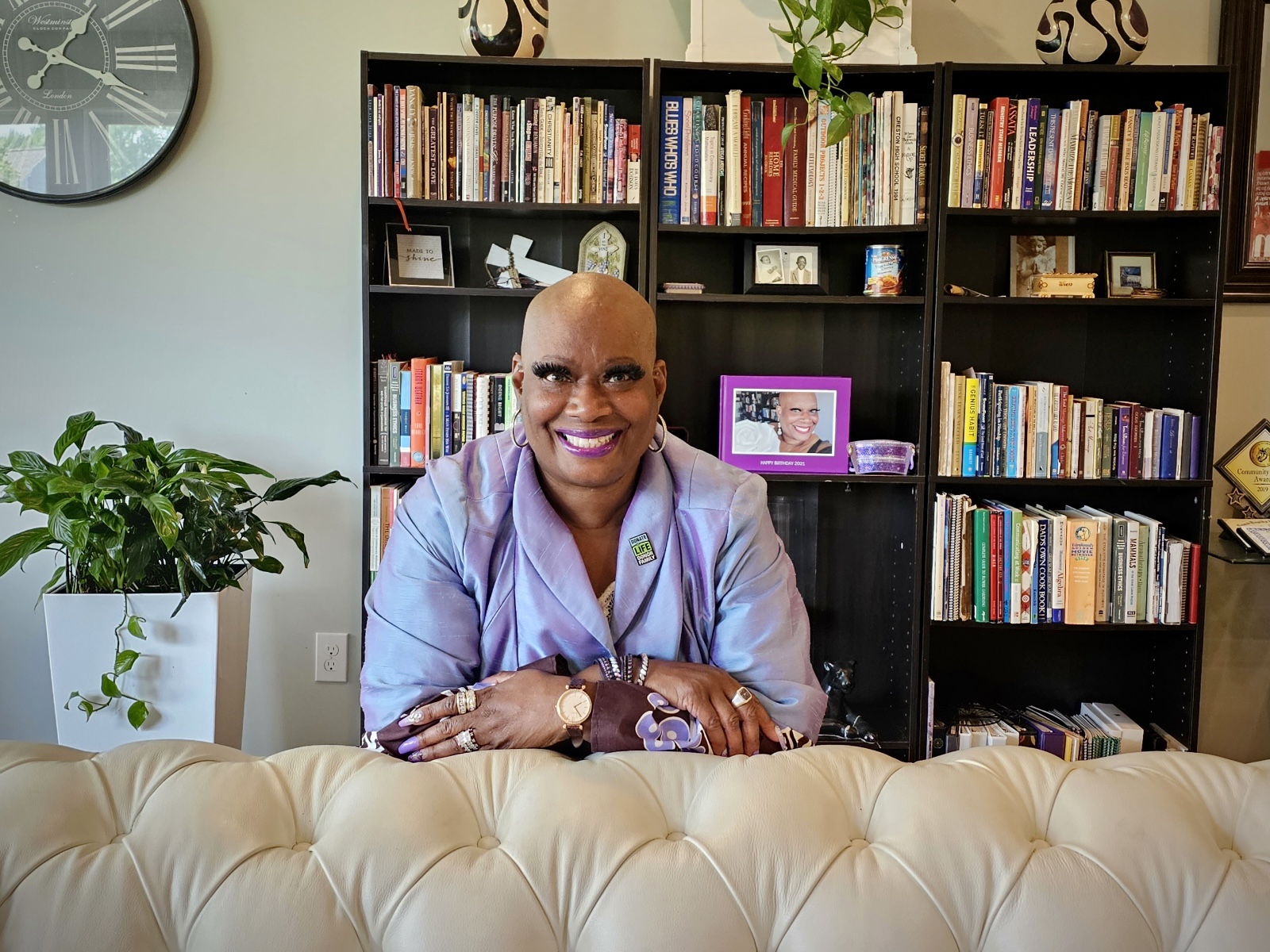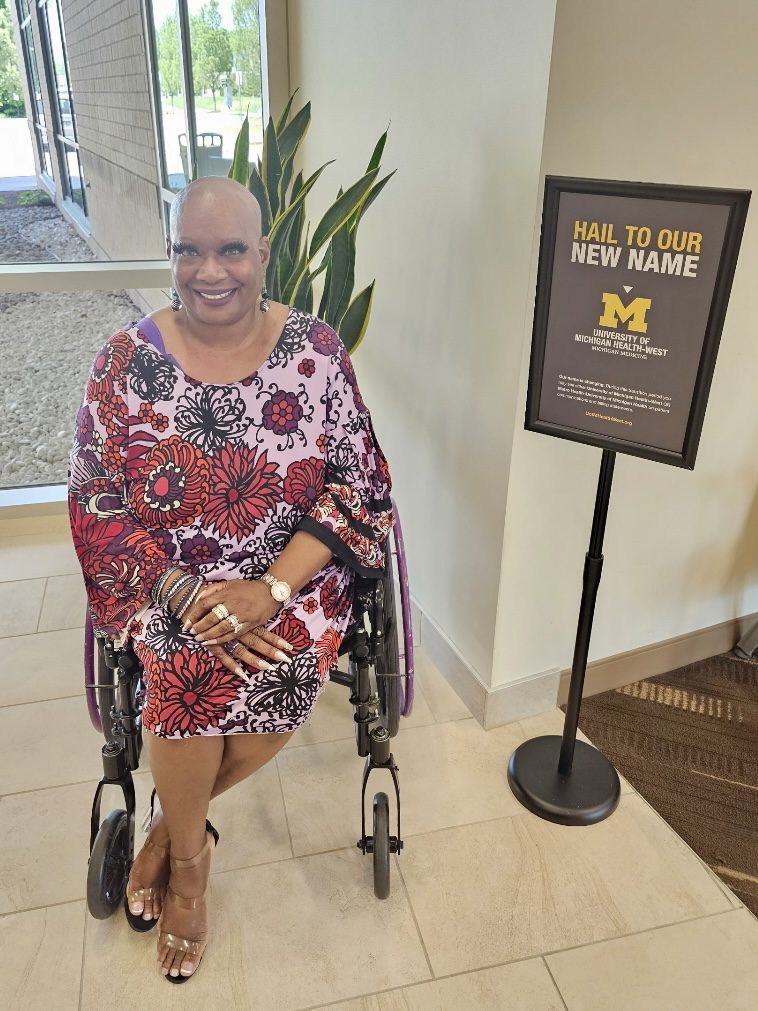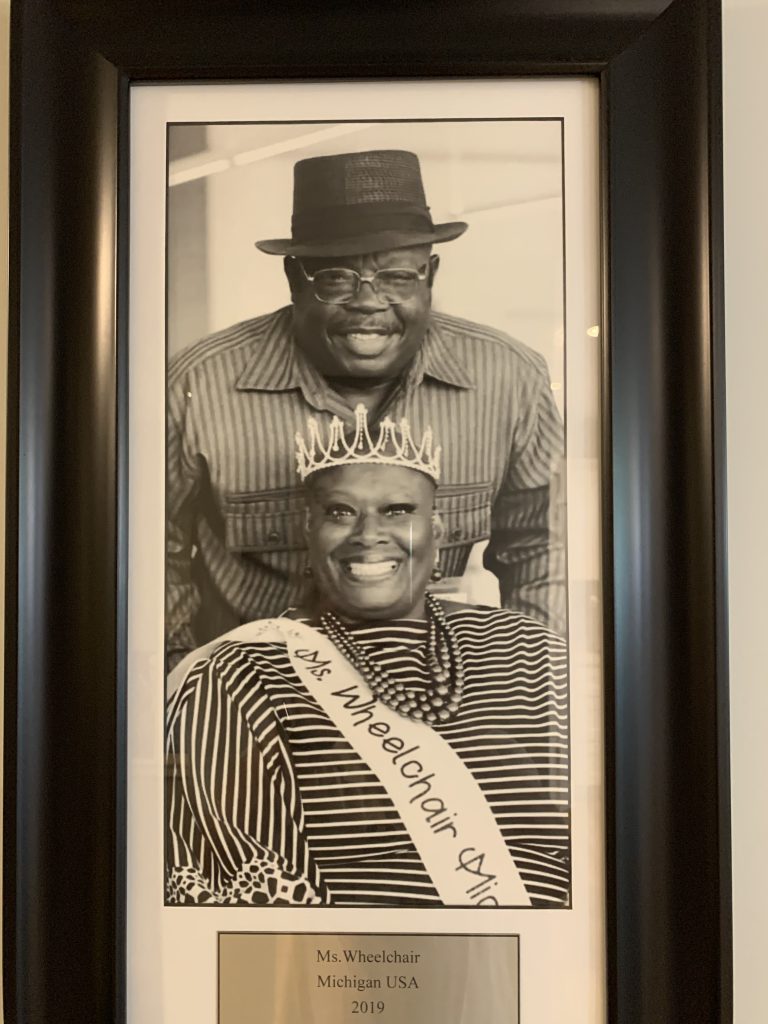
Dr. Kimberly Barrington, a Navy veteran and disabilities advocate, has defied the odds time and again, battling cancer, stroke and multiple surgeries. Recently, a life-threatening health crisis led her to the expert care at University of Michigan Health-West.
In May 2023, just days after her husband Stanley’s funeral, Barrington returned home from an outpatient procedure at the Veteran’s Affairs hospital in Ann Arbor. Soon after, she began to feel ill experiencing nausea and a severe headache that blurred her vision. Initially suspecting a reaction to new medication on an empty stomach, it soon became clear her symptoms were more serious.
“This was beyond my normal. I know me and I know my body,” Barrington recalled.
Her instincts proved right, as emergency department staff at UM Health-West quickly identified her symptoms as a heart attack. Following a series of tests, an uncommon diagnosis shed light on the toll stress had taken on Barrington’s heart.
Dr. Eric Walchak is interventional cardiologist and member of the Cardiovascular Network of West Michigan, a joint operating agreement that leverages the expertise of Trinity Health Muskegon, Trinity Health Grand Rapids, UM Health-West, and more than 125 years of cardiovascular leadership from University of Michigan Health in Ann Arbor. He explained Barrington experienced stress cardiomyopathy, commonly referred to as “broken-heart syndrome.” The condition occurs when a person experiences intense emotional or physical stress.
In Barrington’s care, a surge of stress hormones, such as adrenaline, temporarily damaged her heart. According to Dr. Walchak, stress cardiomyopathy falls under the category of “type two heart attacks,” which are distinct from the more common type one heart attacks caused by blocked arteries.
“Most people identify a heart attack as a blocked artery, ultimately needing a stent or bypass revascularization,” Walchak explained. “Everything else that puts some stress on the heart like infection, high fevers, car accidents, stress cardiomyopathy, etc., are considered type two heart attacks.”
Both traditional and stress cardiomyopathy symptoms can present differently in women. “Symptoms in general are different between women and men. Women may have more atypical symptoms, interscapular back pain or just severe shortness of breath instead. They might not experience classic chest discomfort,” Walchak said.
In Barrington’s case, Walchak confirmed she had stress cardiomyopathy and a traditional heart attack simultaneously. “She experienced both. And some patients don’t recover their heart function despite medications. Some turn around within 24 to 48 hours. We can’t explain the differences in outcome.”
The UM Health-West care team offered Barrington a hopeful prognosis with medication and lifestyle changes. Although her left heart ventricle had suffered damage, she was able to be discharged after four days.
Reflecting on her experience, she praised the cardiology and hospital teams.
“The time, the love, the care… we even prayed together. The service was just—I don’t even want to say service, I want to say I had a respite with family and friends, that’s how it really felt.”
Barrington’s gratitude extended beyond her specialized care. She commended the hospital staff, “I could not have asked for a better stay,” she acknowledged. “They were awesome! They get five stars; they get five stars plus.”
The level of care Barrington received at UM Health-West has left an indelible impression on her. “I didn’t want to be there, especially not for the reason that I was there,” she admitted. Yet, the compassion and support she encountered transformed her hospital stay, akin to being surrounded by family and friends.
As she continues her journey of resilience and advocacy, Barrington offers advice to others facing health emergencies.
“Know yourself. Know your body. Take a hands-on approach to your health and recovery.” She also emphasizes the importance of not ignoring or downplaying warning signs. “Love yourself enough to listen to your body.”


